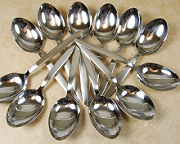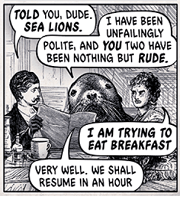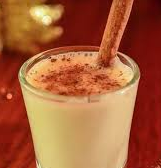Friday, 15 December 2017
12:15 AM
Here's something fun: this is my 100th Friday Words blog entry. Who knew there were so many words that I didn’t know? Haha.
 Today’s new-to-me term is spoon banditry. I learned this recently from editor and Facebook friend Dan Layman-Kennedy during a discussion of what he termed "attention-demanding troll tactics." Spoon bandits are what Abi Sutherland refers to as "people who demand my energy without my consent"; spoon banditry is the practice of this unpleasant style of interaction. Today’s new-to-me term is spoon banditry. I learned this recently from editor and Facebook friend Dan Layman-Kennedy during a discussion of what he termed "attention-demanding troll tactics." Spoon bandits are what Abi Sutherland refers to as "people who demand my energy without my consent"; spoon banditry is the practice of this unpleasant style of interaction.
The spoon in spoon bandits seems to come from the "spoon theory," a kind of parable in which a person’s energy is represented as spoons. (The origin story is set in a diner, where spoons served as a convenient analogy.) A person starts the day with a certain number of spoons, but each demand or obstacle takes a spoon away.
You can see how spoon banditry describes a certain kind of internet troll—someone who exhausts you with continual arguing, or even just with their relentlessness in prolonging some online debate.
 One version of spoon banditry is sealioning, which Nancy Friedman discussed as one of her weekly words, and which she defines as "[i]n social media, pestering a target with unsolicited questions delivered with a false air of civility." (The term sealioning comes from a Wondermark cartoon in which a sealion exhibits this type of trolling behavior.) However, Dan notes that there are other types of spoon banditry as well; another example is moving the goalposts. One version of spoon banditry is sealioning, which Nancy Friedman discussed as one of her weekly words, and which she defines as "[i]n social media, pestering a target with unsolicited questions delivered with a false air of civility." (The term sealioning comes from a Wondermark cartoon in which a sealion exhibits this type of trolling behavior.) However, Dan notes that there are other types of spoon banditry as well; another example is moving the goalposts.
Anyway, next time someone just will not quit with something on the internet, you’ve got a name for it. Also, don’t be afraid to mute or block. Just sayin’.
Update: Nancy points out that she also wrote about spoonies.
 For unexpected word origins today, I got to wondering about a seasonally appropriate word: eggnog. The etymological surprise about that term, however, is that no one is 100% sure where it came from. For unexpected word origins today, I got to wondering about a seasonally appropriate word: eggnog. The etymological surprise about that term, however, is that no one is 100% sure where it came from.
The word nog is a dialectical term from England (specifically from Norfolk in East Anglia) referring to a type of strong ale. The OED’s first entry for eggnog is only from 1825, whereas nog goes back to the 1600s. So it’s not known when people first assembled the two terms into one.
Egg-based cocktails are not so popular now, but used to be much more common. The Alcohol Professor site has a history of egg-based alcoholic drinks that includes this info:Peasants during the Dark Ages … would mix [eggs] with milk, alcohol and other spices to make a posset. Possets were initially used either as medicine or to keep warm at night. [...] The alcohol itself was more a "what is available" question as opposed to a specific requirement. Sherry, also known as sack, was most common, as was beer, wine, and madeira. These concoctions became less popular, but eggnog survived. And although traditional eggnog is indeed spiked, it can also now refer to a drink that has no alcohol in it at all. I imagine that those Dark Ages peasants would wonder what the point is of that kind of eggnog.
Like this? Read all the Friday words.
[categories]
Friday words, language
|
link
|